Uncategorized
-
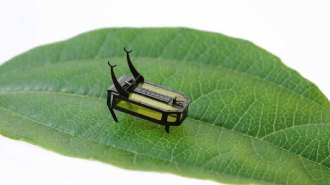 Tech
TechMethanol fuel gives this tiny beetle bot the freedom to roam
A new robot insect uses energy-dense methanol as fuel, not batteries. It could be a blueprint for future search-and-rescue bots with long run times.
By Carmen Drahl -
 Animals
AnimalsCulling dingoes with poison may be making them bigger
Meat laced with toxic powder has been used for decades to kill dingoes. Now, dingoes in baited areas are changing: They’re getting bigger.
By Jake Buehler -
 Science & Society
Science & SocietyEthan Hawke stars in ‘Tesla,’ a quirky biopic about the iconic inventor
The new movie ‘Tesla’ follows the rise and fall of Nikola Tesla, whose early inventions panned out far better than later projects.
-
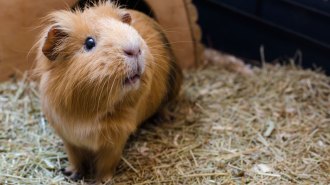 Health & Medicine
Health & MedicineDust can spread influenza among guinea pigs, raising coronavirus questions
In three out of 12 guinea pig pairs, an animal coated in influenza virus, but immune to infection, spread the virus to another rodent through dust.
-
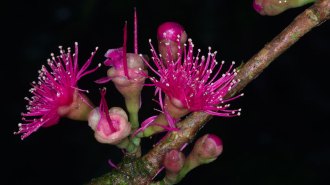 Plants
PlantsNew Guinea has more known plant species than any island in the world
In the first verified count of plants on New Guinea, a team of 99 botany experts identified more than 13,600 species.
-
 Astronomy
AstronomyIn a first, astronomers spotted a space rock turning into a comet
Scientists have caught a space rock in the act of shifting from a Kuiper Belt object to a comet. That process won’t be complete until 2063.
-
 Earth
EarthDeath Valley hits 130° F, the hottest recorded temperature on Earth since 1931
Amid a heat wave in the western United States, California’s Death Valley is back in the record books with the third hottest temperature ever recorded.
-
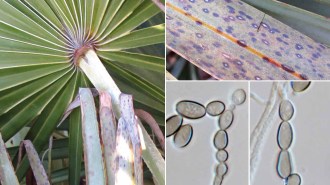 Life
LifeHow two new fungus species got named after the COVID-19 pandemic
Tiny fuzz on a beetle and fake leopard spots on palms now have Latin names that will forever nod to the new coronavirus.
By Susan Milius -
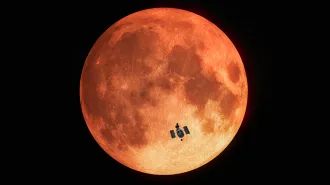 Astronomy
AstronomyHubble watched a lunar eclipse to see Earth from an alien’s perspective
Hubble observed sunlight filtering through Earth’s atmosphere during a lunar eclipse to see what a habitable exoplanet’s atmosphere might look like.
-
 Climate
ClimateHurricanes have names. Some climate experts say heat waves should, too
A newly formed international alliance aims to raise awareness about extreme temperatures and protect vulnerable populations.
By Jack J. Lee -
 Psychology
PsychologyWhy do we miss the rituals put on hold by the COVID-19 pandemic?
Even solitary rituals bind us to our groups and help calm anxieties. What happens when those traditions are upended?
By Sujata Gupta -
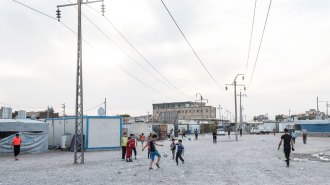 Science & Society
Science & SocietyInterfaith soccer teams eased Muslim-Christian tensions — to a point
Soccer bonded Christian and Muslim teammates in Iraq, but that camaraderie didn’t change attitudes.
By Sujata Gupta